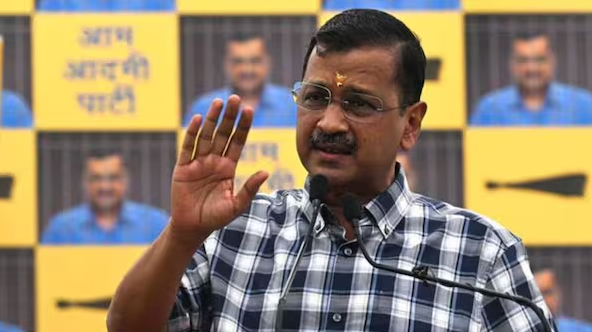Delhi Chief Minister Arvind Kejriwal has filed a petition in the Delhi High Court challenging his arrest and subsequent remand by the Central Bureau of Investigation (CBI) in connection with the excise policy case. Kejriwal’s legal move follows a June 26 decision by a Delhi court, which upheld the legality of his arrest and ordered his transfer to CBI custody for three days.
On Saturday, a local court extended the judicial custody of the Aam Aadmi Party (AAP) national convenor until July 12, citing his alleged involvement as one of the main conspirators in the corruption case linked to the excise policy. The court reasoned that further custodial interrogation might be necessary as the investigation progresses.
Following the end of his initial three-day custodial interrogation, Kejriwal was produced in court by the CBI. The agency sought a 14-day judicial custody, claiming that the AAP chief was uncooperative and provided evasive responses during the investigation. The CBI also expressed concerns that Kejriwal might influence witnesses and tamper with evidence exposed during his interrogation.
Kejriwal, 55, was originally arrested on June 26 from Tihar Jail, where he was already in judicial custody in a related money laundering case filed by the Enforcement Directorate. Special Judge Sunena Sharma justified the remand, stating that the alleged conspiracy involved numerous individuals in the formulation and implementation of the excise policy, as well as facilitators of illicit financial activities.
The court noted that Vijay Nair, a close associate of Kejriwal and the media-in-charge of AAP, had contacted various liquor manufacturers and traders to solicit bribes in exchange for favorable provisions in the 2021-22 excise policy. Kejriwal was identified as a primary conspirator in the criminal conspiracy, facing charges under the Prevention of Corruption Act and the Indian Penal Code.
The investigation has already resulted in four chargesheets against 17 accused individuals, including members of the “South Group.” The court highlighted that the investigation officer (IO) reported Kejriwal’s lack of cooperation and failure to disclose key facts during his interrogation.
The IO presented evidence indicating that illicit funds were used for the Goa assembly election, covering expenses for air tickets and hotel bookings during Kejriwal’s visits to Goa from June 2021 to February 2022. Additionally, incriminating material revealed Kejriwal’s communication with individuals involved in transferring illicit funds to Goa through hawala channels.
Kejriwal’s evasive replies about his connections to these individuals prompted the need for further custodial interrogation to uncover the larger conspiracy behind the excise policy and the use of illicit funds by Kejriwal and other AAP leaders. The court ruled that while it could review the case diary, the evidence collected could not be disclosed to the accused until the final report was filed by the CBI.
In its remand plea, the CBI accused Kejriwal of non-cooperation and providing false explanations regarding the increase in profit margins for wholesalers under the 2021-22 excise policy, implemented hastily during the peak of the second wave of Covid-19. The agency also highlighted Kejriwal’s inability to explain meetings and financial transactions involving his associate Vijay Nair and other accused individuals.



